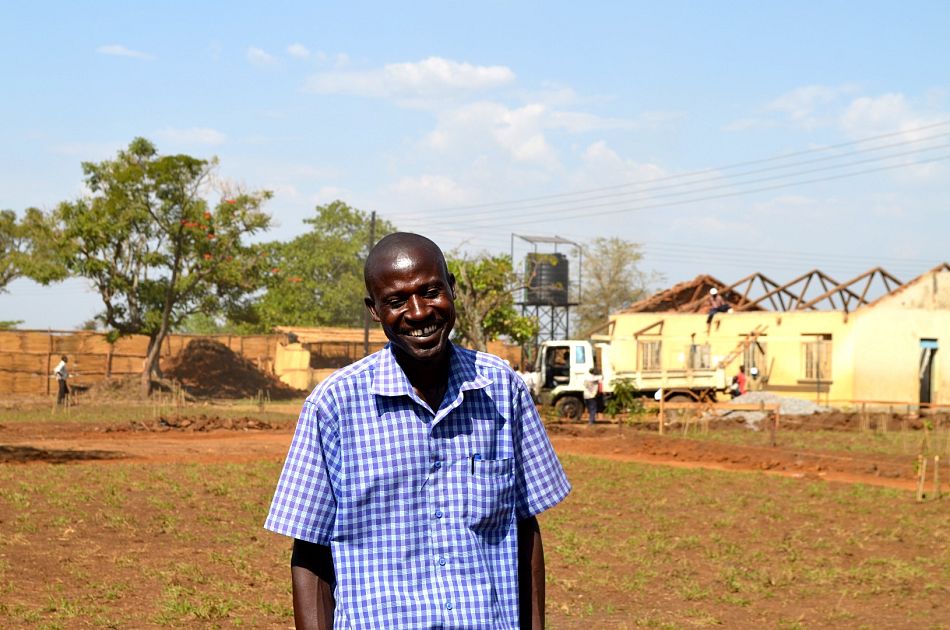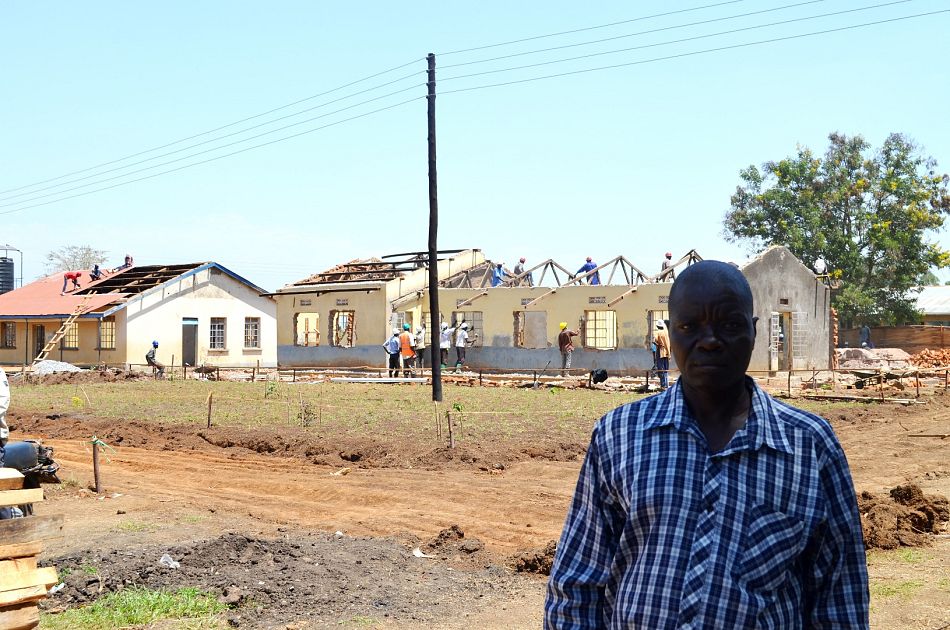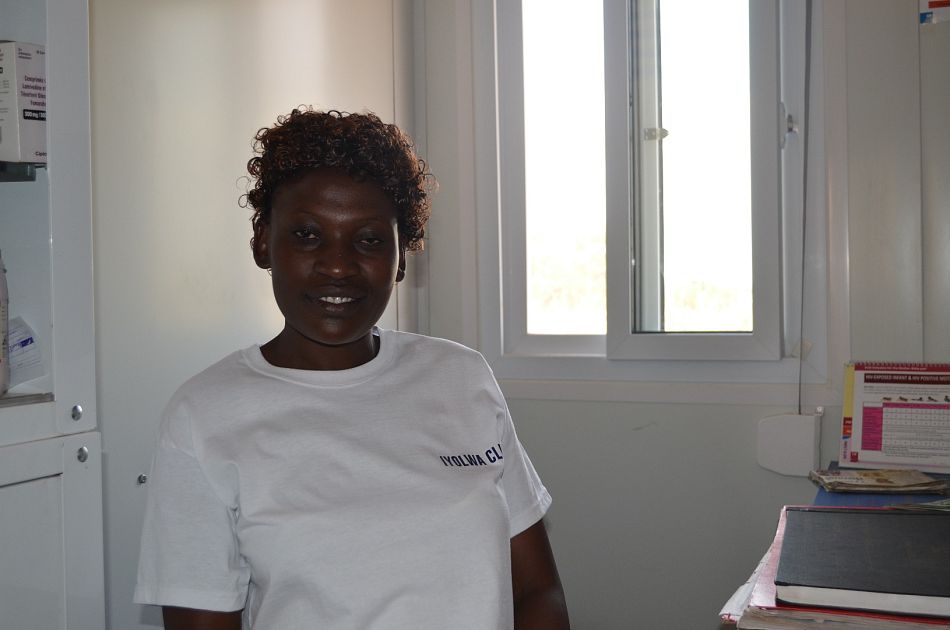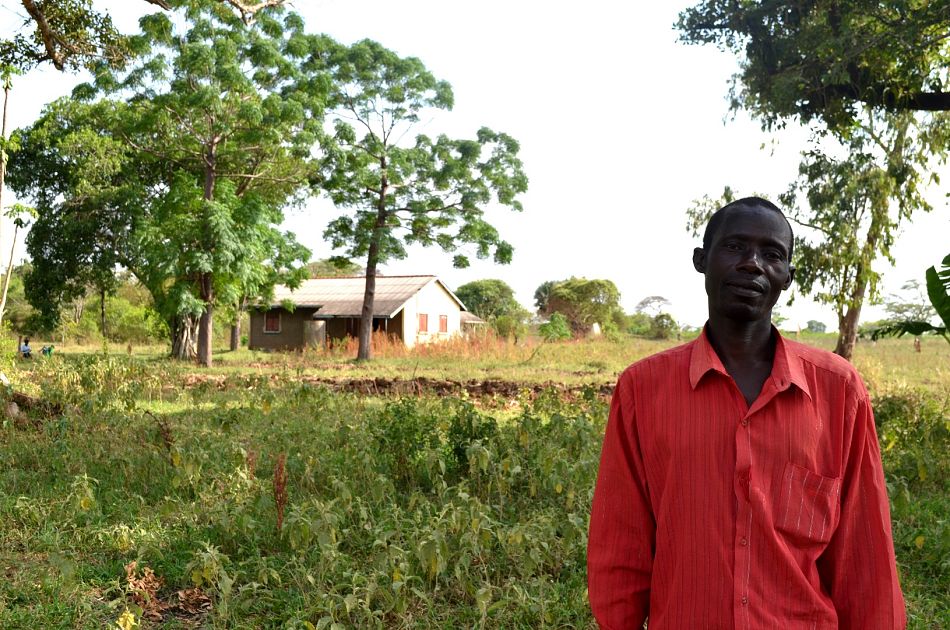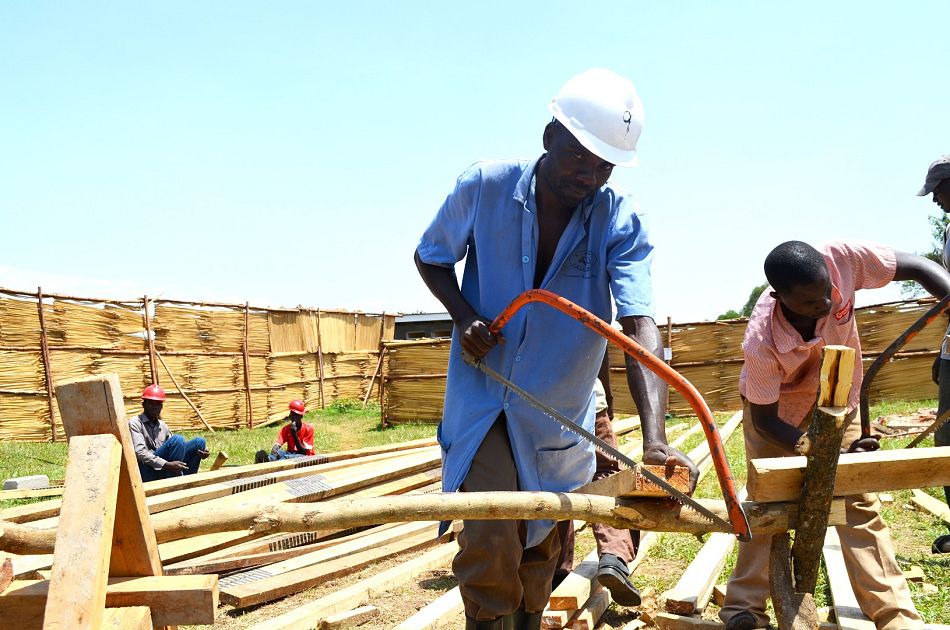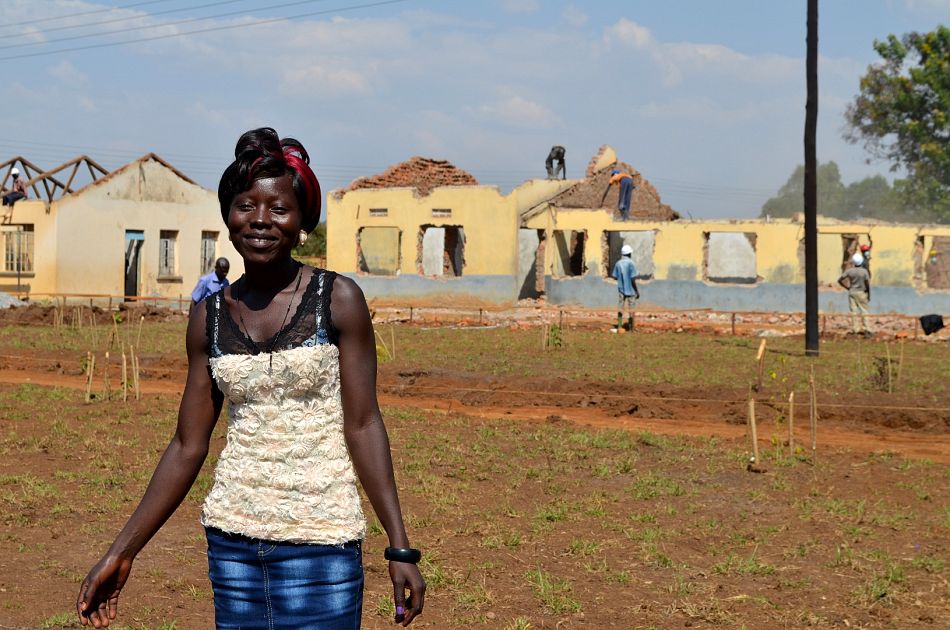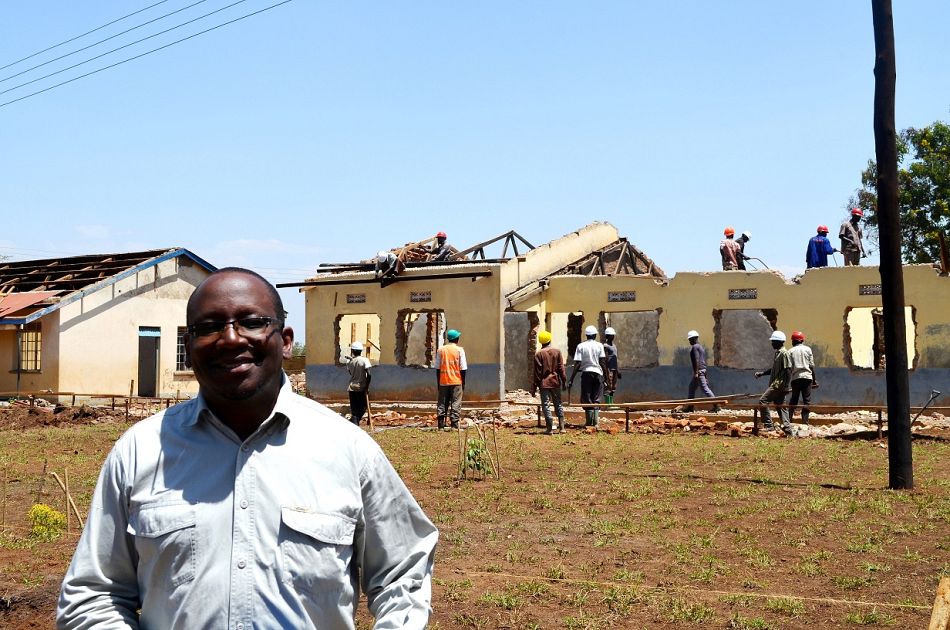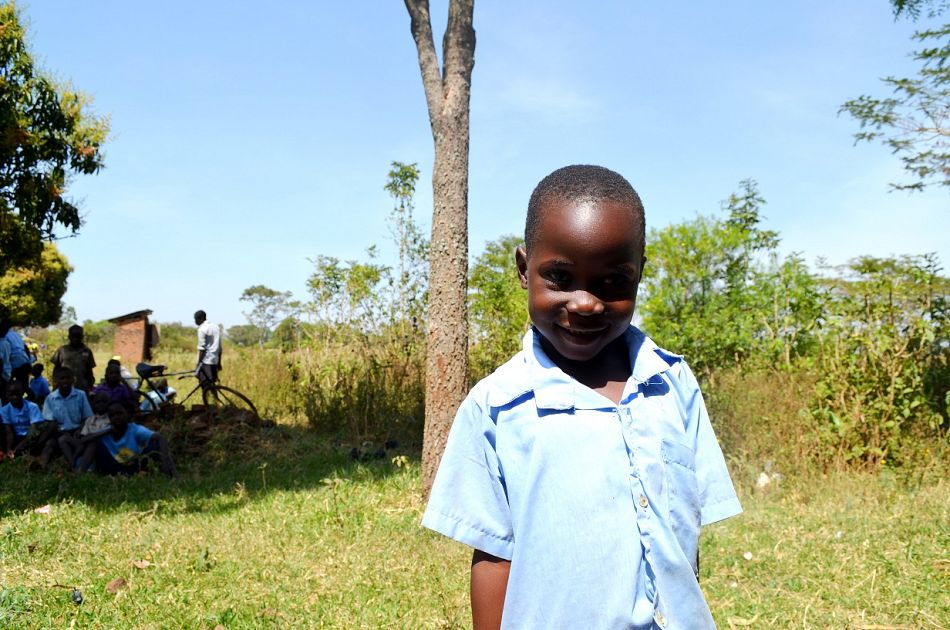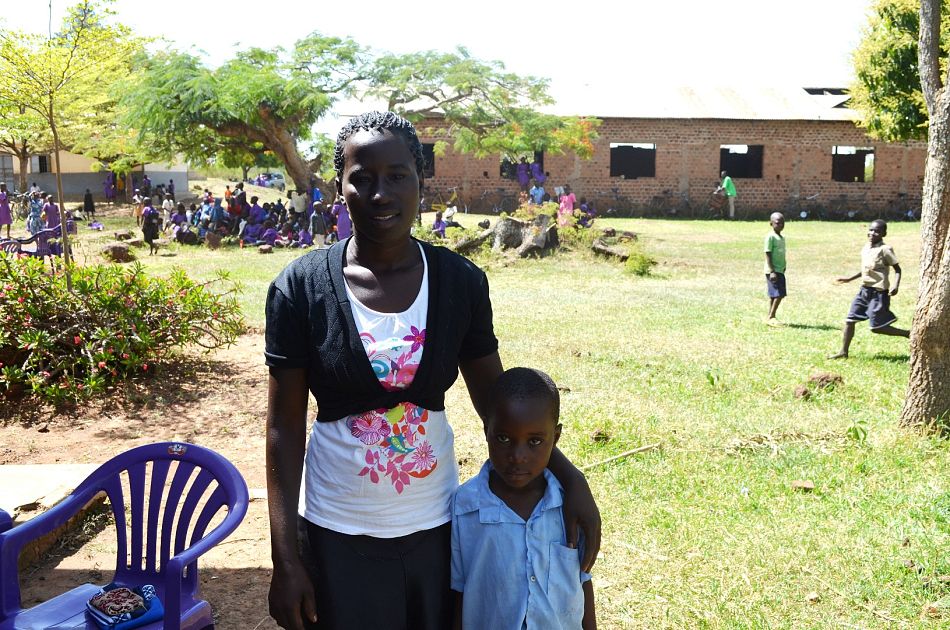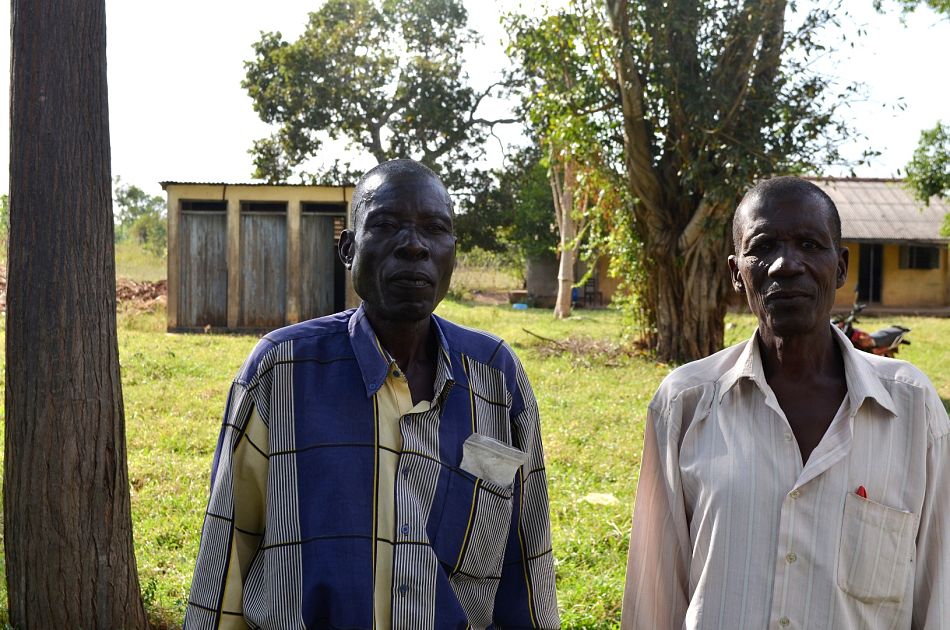The people behind Operation Health
8 April 2015
Operation Health – Comic Relief’s initiative to refurbish a health facility with support from Malaria Consortium – has had widespread participation from the local community in Iyolwa, eastern Uganda. Check out the photo gallery below to hear from the people who made the renovation a success.
“The rooms were not enough [in the old health centre]. There was no privacy. At times someone could come into the room when you were having complications. In the new clinic, there will be more rooms. Good rooms. The other one was just open. There’s a counselling room, doctor’s room, dispensing room and a waiting room – because the old one, people used to wait outside, under the shade. With this new structure, everything will be inside.”
-Cosmas, facilitator between communities and health centres
“On Saturday, we had a market just adjacent to this health centre. I was impressed when I saw most of my workers here. They had books, they were buying pencils, and they were buying school uniforms. The business community has also benefited a lot because we get materials like cement from them.”
-Okware Lawrence, Site Manager
“We used to deliver babies in darkness, and just use the torch from our phone. The place was not conducive for new-borns. At the moment, this place is nice for working. Before, most of the mothers could not even come here and deliver because of the condition of the health centre, but right now they have interest. When they have any problem, they rush to hospital because they see now that in the new ward they are in a safe place to deliver.”
-Anastasia, enrolled mid-wife at Iyolwa Health Centre III
“At the health centre, there’s good treatment, but there are few [staff]. If maybe the government can add some workers, it would be okay. The construction will help, but we should also push the idea to the upper government.”
-Asipa John, Chairman LCII of Poyem Parish
Before, we lost very many people because of no transportation. We didn’t have enough doctors and nurses staying within, so you have to look for means to go to town. So at least what they are doing for us here [will be better], because if we have enough doctors here, then there’s no need of someone to be taken to town.
-Yokim, Head Carpenter
“My name is Florence, but I call myself ‘engineer Florence.’ I’m 26 years old. I am a teacher at the local technical school, but for the whole of the last week I have been here waiting for the building to be finished. I will begin the wiring [for electricity] right after the roof is finished.”
-Florence, electrician
“Before, this health centre was – let’s say, unattractive. The buildings were almost collapsing, and the walls were almost falling off. It was even unattractive to the health staff, who would often come and say ‘I can’t sleep here’ and go to town. And at night, you go there and there’s no power, so you have to come along with a small lamp to provide light. The [temporary] containers we are using now are better off than what we used to have, so already it’s attracting people to come and get the services even before the construction is complete. So I’m looking forward to seeing it [when it’s finished].”
-Richard, local manager of a community based organisation
“When I first came out here, honestly I was astonished at the number [of people coming here]. Because there were over 100 people coming to this little health centre, in the state it was in. When we put up the temporary facility, I think the numbers have shot up by at least 50 percent. And now it looks like every day you’ve got those sorts of numbers. So I’m sure the new one is going to be a bit of an attraction when it’s finished.”
-Gonza, Project Architect
Stella, a student at the local school, got malaria when she was younger. After receiving a net through a distribution at her school through Malaria Consortium’s Tororo project, she will be better protected.
“We went to the health facility before, for her. She had some malaria. They removed her blood, tested her, and found out it was malaria. [Recently] I’ve seen a very big difference - I think that after the building, it will be a big difference.”
-Kevin with her daughter Stella, who is in her first year at school
“Formerly, the health centre was in a poor state. You could come and fail to get proper assistance due to a lack of facilities. If you’re not healthy, you can’t go to church. If you’re not healthy, you can’t do your job. If you’re not healthy, sometimes you can’t even move. If we can get services nearby here, and get treatment here, then we are free, and we shall save a lot of lives.”
David, a local pastor
11
1
Country: Uganda
Keywords: Treatment | Health system strengthening | Facility health services | Diagnosis | Community delivery | Maternal, neonatal and child health
